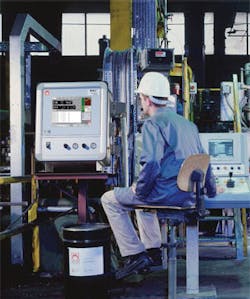Foundries striving to earn or maintain high-value work orders, like automotive contracts, must have two priorities: 1) technical expertise, as in metallurgical proficiency; and 2) process efficiency, as in productive, high-throughput casting operations. So, it’s somewhat surprising that any foundry would rely solely on operators’ skills to get inoculation done right.
Inoculation, or grain refinement, describes various metallurgical techniques used to improve the solidification process just as the metal is being poured into the mold. Frequently, it relies on the ability of an operator to get the process done effectively. An engineering firm known better for designing CNC milling machines, Fooke GmbH, has teamed with Foseco to develop a system capable of adjustable addition of stream inoculants as well as systematic recording and collecting of relevant casting data. It will be introduced and demonstrated this month at GIFA 2011. The system will be available exclusively through Foseco.
Ludger Wellner, who heads Fooke’s Plant Engineering and Foundry Technology division (www.fooke.eu), summarized the new MSI + DC package as “an automatic casting stream inoculation system for the controlled, adjustable addition of inoculants. This process enables optimum and uniform distribution of inoculants for any given casting.”
The basis of MSI + DC is Foseco’s MSI 900 in-stream inoculation system, which is designed especially for highvolume operations, like automotive foundries. Reportedly, it has been adopted at hundreds of installations worldwide. MSI 900 combines a control unit, dosing equipment, and Foseco’s Incremental Thermal and Chemical Analysis (ITACA) technology that monitors and stabilizes iron nucleation in the pour.
Foseco’s Inocheck equipment is included to control injection continuously based on data collected from digital images of the inoculant snapped at the point of contact with the metal stream.
MSI+ DC can be used on mechanized and automatic pouring systems. Switching the equipment on or off can be done with an electrical signal or an optic module. The amount of inoculant, the flow rate, compressed air, and equipment temperature are monitored continuously. The Inocheck camera makes it possible to control inoculant additions to the pour with a tolerance of +/-1% between actual and target dosing, according to Fooke.
To be effective, inoculation must be done consistently just prior to solidification. And, the refining agents perform most efficiently when added to the pouring stream as the metal enters the mold. Maintaining both of these priorities this is the specific advantage of the MSI+ DC system, Fooke reports.
